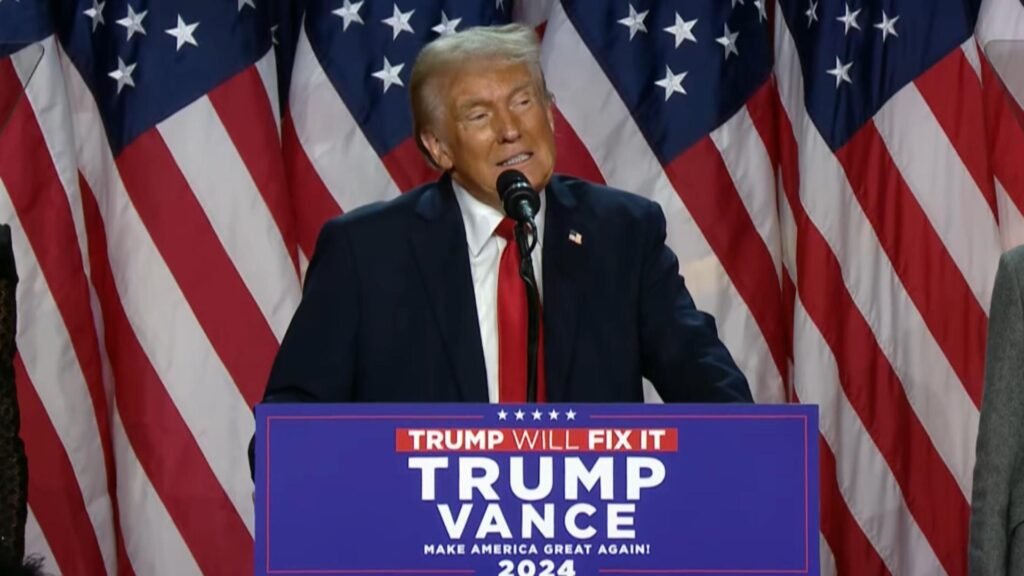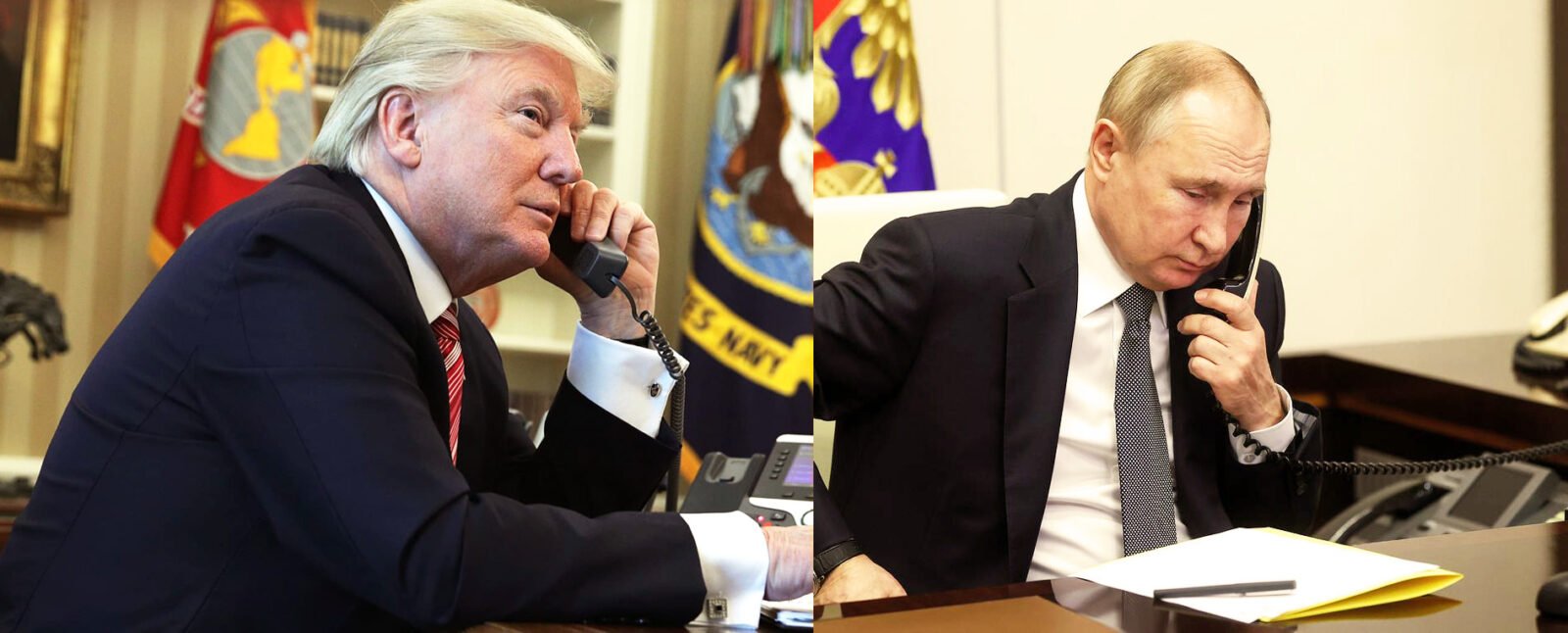In a recent phone call, President-elect Donald Trump urged Russian President Vladimir Putin not to escalate the ongoing conflict in Ukraine, a source familiar with the conversation reported. Trump has been openly critical of the scale of U.S. military and financial aid to Ukraine, repeatedly expressing a desire to limit American involvement in the war. This conversation highlights Trump’s intention to handle the Ukraine conflict differently, though he has yet to specify exactly how he plans to bring the war to an end.
Direct Talks with Putin and Zelensky
Trump’s outreach to Putin was soon followed by a call with Ukrainian President Volodymyr Zelensky. Trump has asserted that he wants to reduce U.S. intervention and prioritize a faster resolution to the conflict, but he hasn’t revealed a concrete strategy. According to Ukraine’s foreign ministry, they were not notified of Trump’s conversation with Putin in advance, and they declined to comment on the nature of the call.
Steven Cheung, Trump’s communications director, provided limited insight, saying only, “We do not comment on private calls between President Trump and other world leaders.” The Russian embassy in Washington similarly did not respond to requests for comment on the conversation.
Biden’s Position and Concerns Over U.S. Involvement
As Trump prepares to take office on January 20, President Joe Biden has invited him to the White House to discuss the transition. Biden has made clear that he hopes to ensure a smooth transfer of power while underscoring the importance of continuing support for Ukraine. U.S. National Security Adviser Jake Sullivan stated that Biden’s message to Trump will include a call for ongoing American support to Kyiv, warning that a reduction in aid could lead to greater instability in Europe.
“President Biden will have the opportunity to make the case for continued assistance to Ukraine,” Sullivan explained, noting that Biden sees a stable Europe as crucial for U.S. national security interests.
Rising Tensions Amid New Drone Attack on Moscow
Meanwhile, the conflict in Ukraine continues to intensify. On Sunday, Ukraine launched its largest drone attack on Moscow to date, with at least 34 drones targeting the Russian capital. The attack underscores the high stakes of the ongoing war, with both sides experiencing considerable losses and continued civilian impacts. Moscow’s response to this attack has not been fully detailed, but it adds urgency to Trump’s intention to limit U.S. involvement.
The Biden administration has provided extensive military and economic aid to Ukraine since Russia’s invasion in February 2022, channeling tens of billions of dollars into support efforts. Trump, however, has frequently criticized the level of aid and expressed skepticism about the U.S. spending so heavily on a foreign conflict.
Keep Reading
OpenAI Unveiled: The High Stakes of Progress and Power
Over 100 to Sue Sean ‘Diddy’ Combs for Sexual Assault
GOP’s Growing Criticism of Foreign Aid
Trump’s stance on reducing American involvement in Ukraine is shared by many Republicans. Senator Bill Hagerty, a close ally of Trump and a potential pick for Secretary of State, echoed Trump’s views in a recent interview, saying, “The American people want their country’s resources directed toward their own needs before investing heavily abroad.” Hagerty’s words reflect a growing trend within the Republican Party, advocating for a “America First” approach to foreign aid, which would significantly reduce U.S. spending on international conflicts like the one in Ukraine.
This perspective could gain substantial traction if Republicans secure a majority in both the Senate and the House of Representatives. With Republicans now set to control the Senate and close to gaining a House majority, the pathway for Trump’s policy on Ukraine would be clearer and may face less resistance in Congress.

Trump Victory Speech
Trump’s Stance on Possible Peace Negotiations
Trump has previously claimed that Russian President Putin would not have invaded Ukraine had Trump been in office. He has suggested that Ukraine might need to consider concessions—possibly even territorial compromises—to reach a peace agreement, a notion that aligns more closely with Russia’s demands than with Ukraine’s stance or the Western allies’ support for Kyiv.
However, Zelensky and Ukrainian officials have firmly rejected the idea of territorial concessions. They continue to demand the return of all occupied territories, a position that the U.S. and other Western allies have largely supported since the start of the conflict.
“Any fast solution to this war could result in costly compromises for Ukraine,” Zelensky recently warned, emphasizing his commitment to reclaiming Ukraine’s full territory.
Shifting Political Landscape as Republicans Gain Influence
With the Republican Party expected to take control of the Senate and near a majority in the House, Trump’s agenda for reducing U.S. involvement in Ukraine may find a more receptive audience in Congress. Analysts predict that a Republican-led Senate would lead to scaled-back support for Ukraine and potentially shift the direction of U.S. foreign policy under Trump’s leadership.
Currently, Congress has appropriated over $174 billion in aid to Ukraine under the Biden administration, according to the Government Accountability Office. Many Republicans have criticized the scale of this aid, arguing that the resources could be better used to address domestic issues within the U.S.
Uncertain Future for U.S.-Ukraine Policy
As Trump prepares to assume office, both allies and adversaries are closely watching how his administration will approach the Ukraine conflict. Trump’s discussions with Putin and Zelensky, along with his consistent criticism of U.S. involvement in foreign conflicts, suggest a significant shift is likely.
Whether or not Trump’s strategy will bring an end to the war remains unclear, but his position signals a potential departure from Biden’s policies and a reassessment of U.S. priorities on the global stage.
- ■ Direct Talks with Putin and Zelensky
- ■ Biden’s Position and Concerns Over U.S. Involvement
- ■ Rising Tensions Amid New Drone Attack on Moscow
- ■ GOP’s Growing Criticism of Foreign Aid
- ■ Trump’s Stance on Possible Peace Negotiations
- ■ Shifting Political Landscape as Republicans Gain Influence
- ■ Uncertain Future for U.S.-Ukraine Policy
